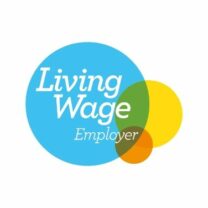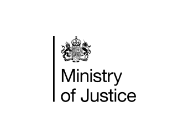Towards the light
Procurement in the social housing sector is often associated with construction-related activities, such as building new homes, planned maintenance, and responsive repairs.
However, the role of social housing providers goes far beyond this, and we have a commitment to nurturing stronger and more connected communities.
That means the goods and services we buy as a sector covers a diverse range of activities that support the communities in which our residents live and work.
Broader needs beyond property procurement
Under the Procurement Act 2023 (the Act), the definition of works and services includes most contracts required to build and maintain homes and properties.
But how does the Act address these broader needs and incorporate the services that support individuals and families into the procurement rules?
The role of Light Touch Contracts
The procurement of Light Touch Contracts offers housing associations an opportunity to focus on services that extend beyond property management.
By exploring how procurement rules apply to areas such as health, social care, and community-based services, which impact directly on individual residents, landlords can demonstrate their commitment to addressing broader social needs and ensuing that right organisations that are committed to social value are at the forefront of delivering for the sector.
Procurement legislation has long recognised a list of services that, because of their sensitivity and criticality to the individual, require more flexibility in their procurement. In this article we take a look at how the Act defines Light Touch Contracts, what these contracts are and the differences in how contracts of this nature can be procured.
Light Touch Contracts are described in Section 9 of the Act as a contract for the supply of services of a kind specified in Schedule 1 of the Procurement Regulations 2024 (the Regulations). Schedule 1 of the Regulations provides a list of light touch services by description and CPV code. Amongst this comprehensive list includes community and organisational based activities such as a range of health and social related services, job search services, library management services, hotel accommodation services and legal services.
Thresholds and public contracts
The threshold for the procurement of Light Touch Contracts is set at a higher figure of £663,540 inclusive of VAT. At and above this threshold (and in so far as the contract is not exempted by Schedule 2 of the Act), Light Touch contracts are public contracts, and they are subject to the same rules as above threshold contracts of other types. The above threshold procurement of a Light Touch Contract will be covered by the Act’s objectives of value for money, maximising public benefit, sharing information and acting with integrity. Suppliers must be treated equally, and consideration must be given to the barriers faced by SMEs and the removal of the same.
Direct award flexibility and tendering procedures
The Act contains a conditional justification for a direct award in the case of user choice services that are provided for the benefit of an individual, and where the views of the individual or their carer should be considered when determining which supplier should provide the services. From a procedural perspective, all social housing providers will have the freedom to use the competitive flexible procedure when the Act comes into force. Direct awards aside, the procurement of Light Touch Contracts will soon be procedurally aligned with that of other public contracts, rather than being subject to a separate procurement regime as is currently the case within the Public Contracts Regulations 2015.
Key differences in the procurement and management of a Light Touch Contract
There are further notable differences in the procurement of Light Touch Contracts. For example, whilst there must be consideration to the use of Lots in the procurement there will not be a requirement to justify a decision not to divide the contract into Lots. Light Touch Contracts are not subject to the minimum timescales for participation and tendering procedures that other public contracts are and instead have a requirement that the timescales must be sufficient for the nature and the complexity of the contract being awarded. There is a wider flexibility to modify a procurement once it is underway. Whilst assessment summaries and a contract award notice must be published at the end of the evaluation there is no requirement to adhere to a mandatory standstill period. A contract details notice disclosing the outcome of the procurement must be published but within an extended timescale of 120 days. Light Touch Contracts are also exempt from some of the contract management obligations of the Act such as establishing three KPIs in contracts that are valued over £5million, the publication of an assessment of contract performance. Light Touch Contracts can also be modified in a way that is free of the constraints that exist for other types of contracts.
Challenges and opportunities for procurement practitioners
The procurement of Light Touch Contracts, whilst providing the ability to tailor and work flexibly to the needs of the end user, present a challenge to procurement practitioners who procure them occasionally, or early in the life of the Act whilst the many twists and turns of procedural exceptions are sequenced in practice.
The high threshold before the rigour of the Act applies to the procurement of a Light Touch Contract makes a further compelling case for fluency with the rules that apply to the procurement of regulated below threshold contracts.
As an organisation that was founded by housing associations over twenty years ago with a clear mission to help the sector achieve significant cost savings while maximising social impact, we are passionate about landlords making best use of the new Act.
Our team supports procurement every step of the way, ensuring that value is embedded in projects from the outset and consistently delivered throughout.
We are working with landlords across the country to offer the expertise that enables teams to adapt with confidence, without the need to expand their procurement teams significantly. Our approach provides landlords with streamlined, compliant procurement processes that enhance social value and local impact.
Have you read these?
Need help, advice or support?
Call us right now on:
Alternatively, schedule a call or meeting with one of our team
We have a team of experts ready and waiting to talk you through any queries you have, whether you’re a new or existing customer.






